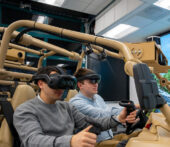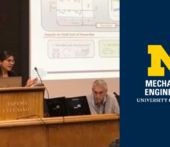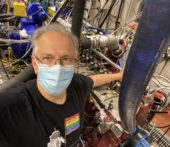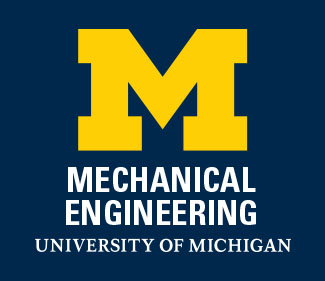
01/25/2024
The U.S. Army has has reached a new five-year agreement of up to $100 million with U-M’s Automotive Research Center to boost work on autonomous vehicle technologies.

The U.S. Army has has reached a new five-year agreement of up to $100 million with U-M’s Automotive Research Center to boost work on autonomous vehicle technologies.

A gathering of a few of the many efforts mechanical engineers are putting towards a greener future. Happy Earth Day!

The UM Battery Lab, led by Mechanical Engineering Professor Jeff Sakamoto, is working to create safer electric vehicle batteries that last longer.

Dr. Stefanopoulou spoke about her “research vision on electrification of the automotive sector and the challenges that are involved in advancing battery technology.”

Bogdan Epureanu, Arthur F. Thurnau Professor of Mechanical Engineering and Director of the Automotive Research Center, has been selected on behalf of the ASME Technical Committee as the recipient of the 2022 N. O. Myklestad Award.

U-M researchers collaborating with Volvo Technology of America are contributing to the demonstration of an engine with 55% peak brake thermal efficiency.

University of Michigan researchers have contributed to Volvo’s demonstration engine that will achieve a peak of 55% brake thermal efficiency, meaning high fuel efficiency. U-M studies showed a 35% reduction […]

The Ford Motor Company and the University of Michigan have been integrally entwined for over 100 years. Today, dozens of Ford leaders engage with U-M on a weekly basis. Rich Strader, the Vice President at Ford Mobility Platforms and Products, is one of them.

The Society of Automotive Engineers’ J. Cordell Breed Award for Women Leaders has been awarded to Angela Violi.

New hydrogen storage holds more energy in smaller, more compact cells, boosting efficiency.